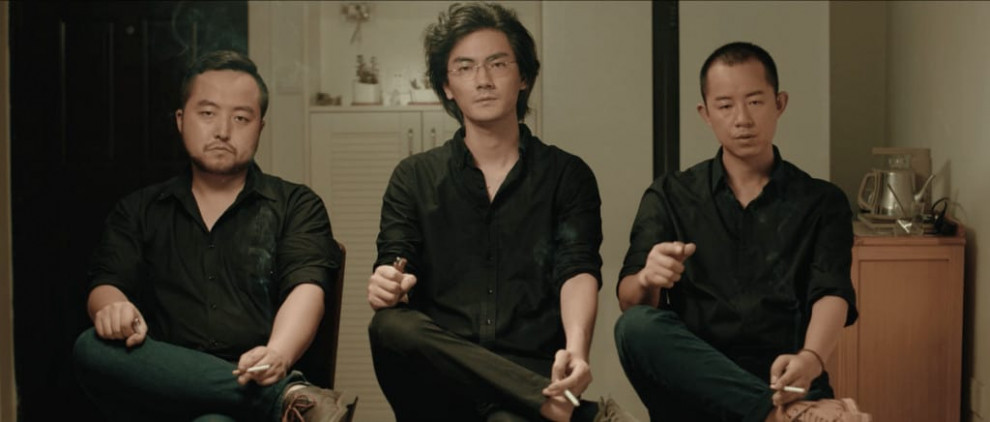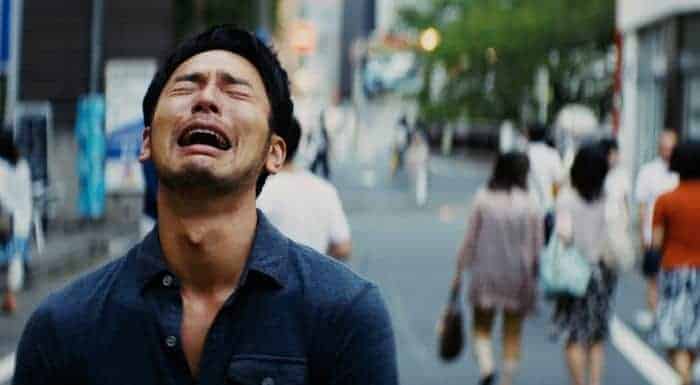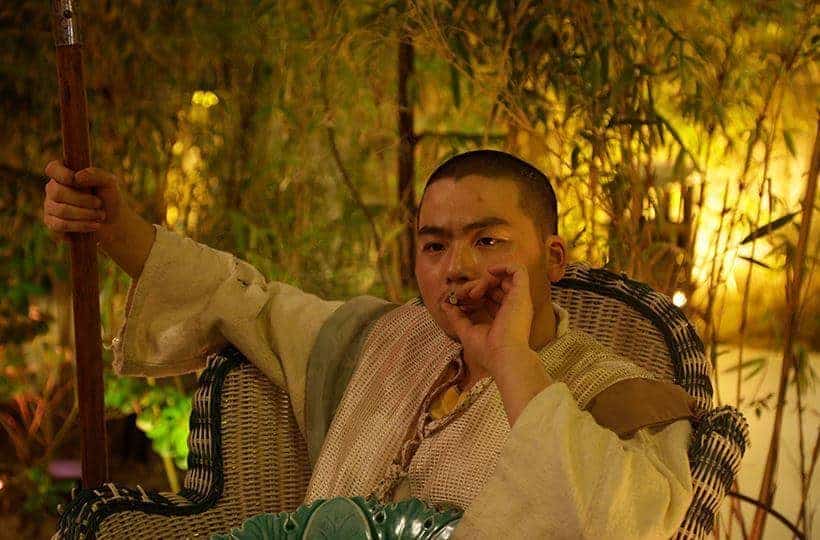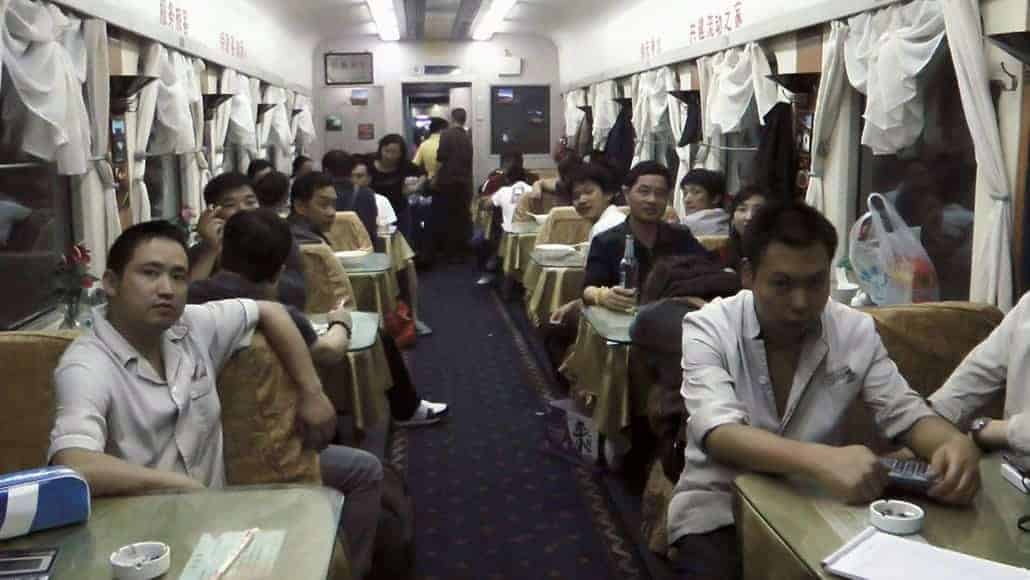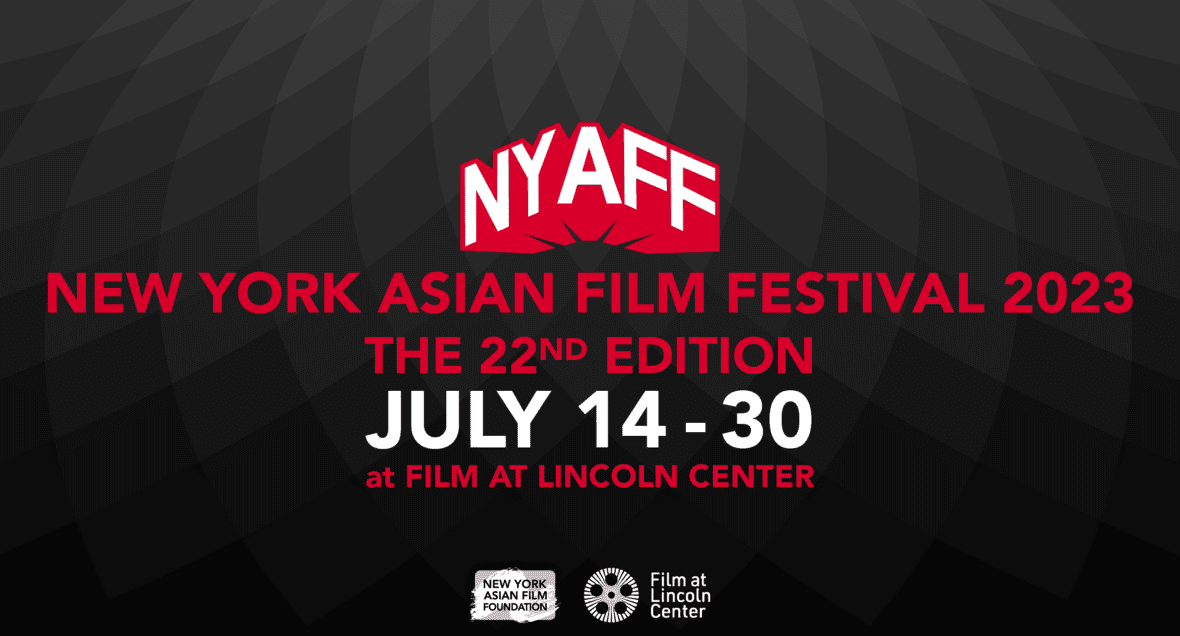If the phrase “money makes the world go round” is to be believed, then Luo Hanxing made it the core of his feature debut “Uncle and House”, a quirky character comedy set in an unnamed Chinese city. Each and every character is connected by the passing of a 100-Yuan note, but as Luo increasingly hints at, the changing nature of money could perhaps see a different nature in human interactions.
Xiao Bang (Gao Zhen) is a debt collector with a twist: fronting a three-man agency collecting for various loan sharks for a 10% fee, he is a foreign-university-educated man whom the world promised so much more. Along with his “colleagues” Yi (He Kaidi) and Yao (Zhang Ximing), the trio go about their business over the course of the day, coming across various different characters who owe their clients money.
Despite their “gangster” career choice, Xiao works as if a company executive, conducting a series of job interviews with seemingly fresh-faced graduates, and approaches those in debt with an air of sophistication. Straight-out-of-a-comic-book, their idiosyncratic behaviour is met with some bemusement.
Towards the day's end, he collects from an old school friend who now counterfeits money. But with equipment costing more than he has been able to print, he finds himself in debt, trying to make the most of paper cash while people still use it. Their next encounter sees the young daughter of an absent father in debt comment that their routine is just like all the other debt collectors who pass by, leaving Xiao aware that, despite his attempts to experience a real life away from corporate work, his life has become something of a cliché.

All this is played out in a local community where a 100-Yuan note passes through each member of the cast's hands. Starting off with Xiao handing the note to a young relative seeking advice, the community is brought together by its handling of the note from person the person, before coming full circle and making its way back to Xiao. The title “Uncle and House” refers to the two sides of the 100-Yuan note: “Uncle” Mao Tse-tung on one side; the Great Hall of the People at Tiananmen Square on the other.
With two sides to the storyline, there are also two sides to Luo's purpose for the film. On the one side, there is the comedy playing its way throughout in the background. This is not a comedy of straight-up laughs, but a funny world created by the unusual characters who populate it. Visual comedy is ever-lurking in the background and within the composition of shots: people glued to their phones in synchronisation while waiting for a bus; a homeless man forever asleep by a tree.
With little real plot to speak of, “Uncle and House” is more a collection of sketches, with the connecting thread of the 100-Yuan note. This creates the sense of community in the film, where every character has their turn, emphasised by even the smallest part getting an equal picture credit on the film's closing. The scene in the cinema has little value towards the film as a whole, but emphasises a lot of what Luo is trying to say.

On the other side of the note we have Luo's socio-economic commentary. Loan sharks are “all run by females” and are commercialised with apps offering various sums like payday loan companies. Buildings are adorned with advertising-like numbers, in a world seemingly legitimising the work of loan sharks; seen throughout the world with four-figure percentage APR.
Xiao rejected a life where the amount of money your earned determined your status in the world: the only life he saw following the standard path from his university education. He recommends books people should read as he collects money from them, but increasingly his attempts to connect with real people leave him heavy-hearted in a life revolving around money, leaving him detached.
But under his nose, a thriving community happily passes around the 100-Yuan note, in a world where people help each other out and a favour earns a favour. But tellingly, as hinted with his friend's failure to make profit counterfeiting paper money, a young lady pays contactless at the bar with her card, with no handover or exchange between her and the barman. A younger, modern, progressive community lost.
Luo's debut is perhaps not the most accomplished in terms of narrative structure, with some “sketches” clunkily wedged in. But this is all part of the film's charm. There is a laid-back feel to the community in which it is set, allowing the comedy to flow naturally across the high street. The soundtrack adds to this, with the camera slowly following the inhabitants in this small world. All this helps Luo to get his point across, using cinema effectively to communicate his social commentary, in a declining economy of artificial numbers, where paper cash is a tie that binds.

Xiao now rejects his current life, seeing his debt collecting creating more harm than good. His decision is to open a bookshop offering free lending in a financial decision he knows will make little, if any, money. Using his education and books, perhaps he can use paper of a different kind to make the world go round.


